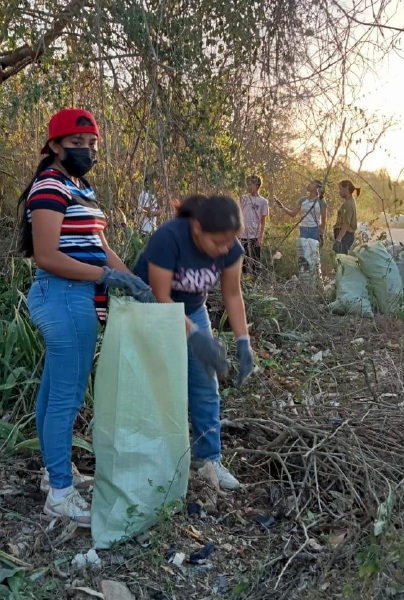Cenotes, the iconic sinkholes of Yucatán, are a popular destination for tourists and locals, especially during the region’s sweltering heat. However, recent concerns have emerged regarding the safety of swimming in these natural wonders.
Reports on social media, particularly TikTok, have highlighted cases of histoplasmosis, a fungal infection caused by inhaling spores of *Histoplasma capsulatum*. This fungus thrives in soil and in bird and bat droppings. Some individuals reportedly contracted the infection after swimming in cenotes in Yucatán. While histoplasmosis is often asymptomatic, it can affect the lungs and, in severe cases, other organs.
Experts, including Yamili Salazar Ku, director of Gips Bacab A.C., and anthropologist Sergio Grosjean Abimerhi, have pointed out that the risks associated with cenotes extend beyond fungal infections. Grosjean explained that the fungus is not exclusive to cenotes but is commonly found in caves, particularly in dry areas. He noted that excrement from iguanas, bats, and birds contributes to the presence of spores and bacteria that can cause infections.
Grosjean emphasized that individuals with weakened immune systems are particularly vulnerable. He also highlighted the lack of proper studies to assess the recreational viability of newly discovered cenotes. Many cenotes are opened to the public without evaluating water quality, including pH levels and the presence of fecal coliforms, which can result from agricultural runoff and urban development.
The anthropologist also warned about the environmental impact of over-tourism. Excessive visitor numbers can disrupt the delicate ecosystem of cenotes, while the use of machinery to expand these sites often leads to the destruction of aquatic life. In some cases, residents have resorted to using chlorine to clear cloudy water, further contaminating the aquifer.
Between 2012 and 2016, Grosjean conducted studies on 60 cenotes, finding that 83% showed alarming levels of contamination. He believes the situation has likely worsened since then.
Organizations like Gips Bacab A.C. are working to address these issues. Salazar Ku explained that the group focuses on water conservation in the Cenote Ring Geohydrological State Reserve, a critical water recharge area. Their efforts include community education programs, water quality monitoring, and cleanup initiatives. In one cleanup event, volunteers collected 700 kilograms of trash in just two hours.
Salazar Ku also stressed the importance of addressing illegal dumping and the lack of wastewater treatment systems, which exacerbate contamination. While some experts advise against swimming in cenotes due to their role in the drinking water supply, Salazar Ku recommended avoiding ingesting the water and respecting the natural capacity of the ecosystem to allow for regeneration.
The public is encouraged to stay informed and support conservation efforts by following organizations like Gips Bacab A.C. on social media platforms such as Facebook and Instagram.
Source: Diario de Yucatan




